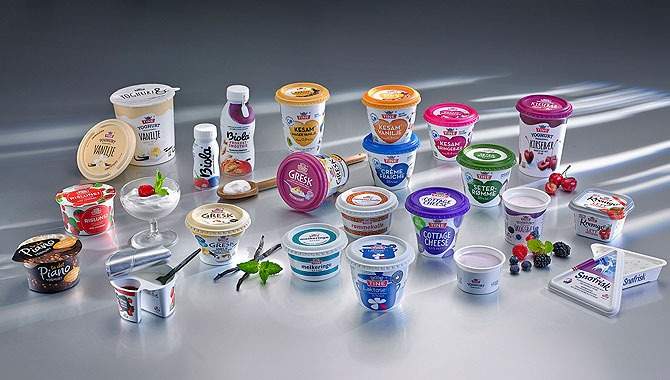Three members of the RPC Group have a three-year cooperation agreement with Norwegian dairy products manufacturer TINE to deliver increased efficiency, stability and superior packaging product development for an optimal end-user experience.

Image: Cooperation agreement demonstrates the diversity of packaging solutions available from the RPC Group. Photo: Courtesy of RPC Group Plc.
TINE is claimed to be the largest Norwegian dairy product cooperative consisting of 11,400 members (owners) and 9,000 cooperative farms.
The RPC companies involved in the agreement are RPC Superfos (injection moulding and thermoforming), RPC Bebo, (thermoforming) and RPC Kambo (injection moulding and blow moulding).
The deal is aimed at delivering enhanced competence, stability and better packaging product development for an optimal end-user experience.
It will enable TINE to create and develop solutions including several production method and materials.
TINE Procurement DM senior category manager Sindre W. Møgster-Walthinsen said: “Based on our positive experience with the RPC companies, we decided to enter a cooperation agreement, because we expect it to result in a range of important advantages.
“As a leading dairy company operating in a competitive environment, we have to stay on top of development. Our packaging must be functional, sustainable and competitive − and always attractive in the eyes of the end-user. With this new setup, we will obtain improved working processes and an increased number of innovative packaging solutions in line with current market demands.”
RPC said a medium-term agreement ensures continuity, stability and efficiency, for instance regarding tool making.
Møgster-Walthinsen said the company seeks to select the right type of plastic material for the packaging of its products and to use an optimal amount of virgin material.
“We look forward to innovative solutions with oxygen and light barrier protection consisting of one single type of material. In future, plastic packaging must be adapted for a circular economy with increased recycling and reuse.
“It is vital for us that RPC understands our customers and end-users. We also value sound knowledge about the carbon footprint and recycling when cooperating with our suppliers. From our point of view, it is important that suppliers like RPC have the broadest understanding of packaging materials.”
